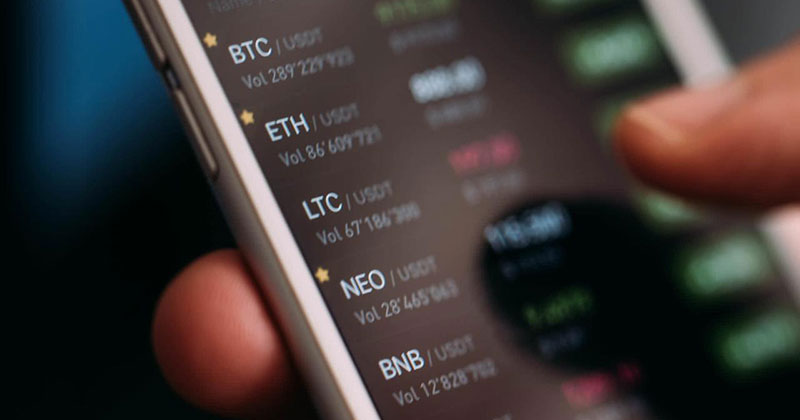The Rise of Day Trading
09 July 2020

“The stock market is filled with individuals who know the price of everything, but the value of nothing.”
—Philip Fisher
In June this year, 20-year-old first-time investor Alexander Kearns opened his Robinhood trading app to see what looked like a balance of negative $730,000 on his account. Distressed at the belief that he owed that much, he promptly took his own life. Later investigations found that had been misled by the interface. He did not actually owe that money, but by then it was too late.
Kearns was a first-time investor. He was one of many young people drawn in by the app’s slick interface, low-to-zero fees and instant account opening. It ‘gamified‘ investing, giving users easy and constant access to stocks, bonds, options and cryptocurrency from the comfort and convenience of their own phones.
Young investors with no prior experience suddenly found themselves able to trade in the markets just by tapping on their phones. It was revolutionary in bringing investing to the masses, but Kearns’ death proves a cautionary tale for newbie investors enticed by the thrill of day trading.
The COVID-19 pandemic has brought a global wave of interest in playing the stock market. The Business Times highlighted how many brokerages in Singapore have been reporting more than a three-fold surge in new account openings and reactivations of trading accounts. Many online brokerages have risen to meet this burgeoning demand with tempting offers of their own, prompting the Monetary Authority of Singapore to issue warnings urging caution when dealing with unregulated online entities.
With interest rates at record lows, investors have also been taking on leverage to throw into stocks in an attempt to amplify their returns. One investor maxed out his credit card limits for collateral so as to obtain a higher exposure to the stock market.
All this is fine and dandy when times are normal. However, even in normal times, investors should be aware that every tale of a financial crisis stems from excessive leverage and borrowing in the financial system; and we are far from normal times right now.
It’s interesting to note that an analysis on day trading attributed its recent rise to the COVID-19 lockdowns. With large swathes of the population stuck at home with little to do, coupled with the suspension of sports, casinos and other entertainment outlets, it’s not surprising that many turned to day trading to scratch their gambling itch. After all, day trading is just another expression of the same desire that drives so many towards gambling and betting.
A Statista report estimated that nearly half of the US population aged 18 and above had placed at least one bet on a sports event before. In Singapore, the National Council on Problem Gambling reports that more than half of Singapore’s adult population has gambled or placed bets in their lifetime.
Research shows that the stocks favoured for active trading exhibit “strong lottery features”, attracting gamblers masquerading as investors. More significantly, these stocks tend to be far more expensive compared to their peers, and contribute negative alpha to investors’ portfolios.
Numerous other studies point to how trading individual stocks causes investors to lose out on a diversified market. Odean and Barber’s 2002 report, “Trading Is Hazardous to Your Wealth: The Common Stock Investment Performance of Individual Investors“, found that investors who traded individual stocks underperformed the market by more than 5% per annum.
Many people mistake gambling for investing. Excessive trading and leveraging, and investing in options, warrants and speculative biotech stocks are not that fundamentally different from rolling the dice at a casino. Since investing involves stocks, bonds and derivatives rather than lottery cards, TOTO, a 4D ticket or fast horses, you might be able to fool yourself into thinking that you are different from a gambler. Unfortunately, the outcomes show otherwise.
If you really must gamble in any form, exercise some prudence in doing so. Set aside a tiny amount of your capital – 5% or less – to play with. That way, if you win, it’s a nice bonus, and if it all blows up, it won’t end up taking you and your family down with it.
#
If you have found this article useful and would like to schedule a complimentary session with one of our advisers, you can click the button below or email us at customercare@gyc.com.sg.
IMPORTANT NOTES: All rights reserved. The above article or post is strictly for information purposes and should not be construed as an offer or solicitation to deal in any product offered by GYC Financial Advisory. The above information or any portion thereof should not be reproduced, published, or used in any manner without the prior written consent of GYC. You may forward or share the link to the article or post to other persons using the share buttons above. Any projections, simulations or other forward-looking statements regarding future events or performance of the financial markets are not necessarily indicative of, and may differ from, actual events or results. Neither is past performance necessarily indicative of future performance. All forms of trading and investments carry risks, including losing your investment capital. You may wish to seek advice from a financial adviser before making a commitment to invest in any investment product. In the event you choose not to seek advice from a financial adviser, you should consider whether the investment product is suitable for you. Accordingly, neither GYC nor any of our directors, employees or Representatives can accept any liability whatsoever for any loss, whether direct or indirect, or consequential loss, that may arise from the use of information or opinions provided.









